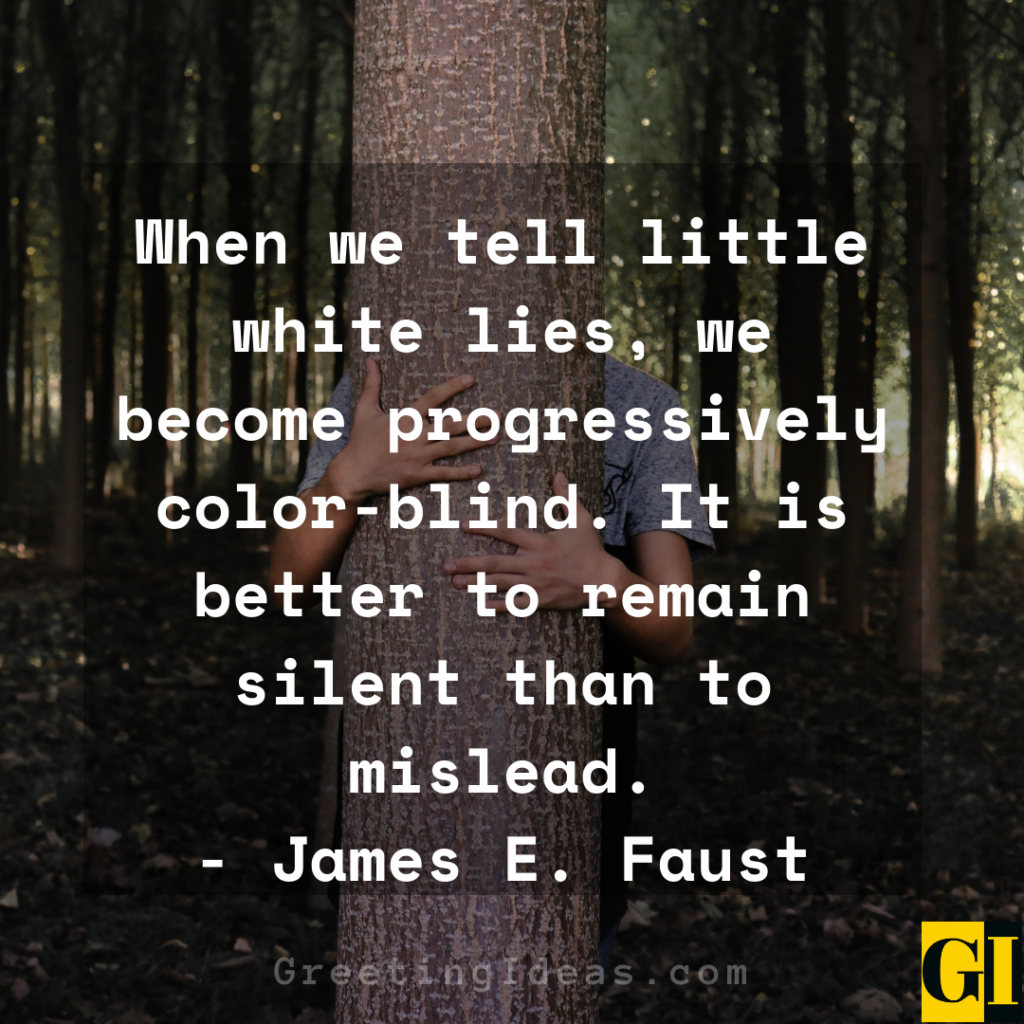FTC disclaimer. This post may contains affiliate links, and I will be compensated if you purchase through one of my links.
In this post, you’ll explore a collection of white lies quotes and reflections that show how soft words can comfort, protect, and sometimes complicate relationships.
Why We Sometimes Choose to Lie Over Truth?
Most of us have told a small cover-up at some point—whether to protect someone’s feelings or to keep a situation calm.
These little adjustments in words are often seen as harmless, but they also spark deeper thoughts about honesty and trust.
Some people view them as thoughtful acts of care, while others feel they blur the line between being real and holding back.
From friendships and family to love and daily interactions, these quiet choices shape the way we connect with others.
White Lies Quotes on Everyday Kindness
This section explores how softened words are often used to protect feelings. While they may seem harmless, thinkers and writers remind us that even gentle adjustments can shape trust and relationships.
 Also Read: 30 Best I Hate Hypocrites Quotes and Sayings
Also Read: 30 Best I Hate Hypocrites Quotes and Sayings
The truth may hurt for a little while, but a lie hurts forever.
– Unknown
This widely cited saying highlights how temporary comfort can lead to long-lasting mistrust, suggesting that small deceptions can leave deeper scars than sincerity.
A lie that is half-truth is the darkest of all lies.
– Alfred Lord Tennyson (Victorian Poet, major figure in English literature)
Tennyson warns of partial transparency, showing how half-statements often confuse and mislead more than clear honesty would.
He who permits himself to tell a lie once, finds it much easier to do it a second and third time.
– Thomas Jefferson (3rd U.S. President, Enlightenment thinker)
Jefferson underscores how softened distortions can create habits, making the lack of integrity easier over time.
The cruelest lies are often told in silence.
– Robert Louis Stevenson (Scottish novelist, author of Treasure Island)
Stevenson points out that omissions can hurt just as much as spoken deception, broadening the idea of hiding the reality.
No man has a good enough memory to be a successful liar.
– Abraham Lincoln (16th U.S. President, nicknamed Honest Abe)
Lincoln suggests that even seemingly harmless cover-ups are difficult to maintain, showing how honesty is simpler.
The trust of the innocent is the liar’s most useful tool.
– Stephen King (American novelist, cultural icon in horror and suspense)
King emphasizes how misplaced trust makes softened deceptions more effective, but also more damaging.
The essence of lying is in deception, not in words.
– John Ruskin (Victorian social critic and thinker)
Ruskin notes that intention defines deception, not just wording—reminding us that even soft adjustments can mislead.
A lie can travel halfway around the world while the truth is putting on its shoes.
– Mark Twain (American humorist, novelist, cultural critic)
Twain humorously observes how distortion spreads quickly, far outpacing sincerity.
Small Cover-Ups in Relationships
These reflections show how authenticity plays a role in love and friendships. They invite readers to question whether kindness should outweigh openness when it comes to close connections.
 Also Read: 60 Famous Hypocrisy Quotes and Sayings on Uprooting Fakeness
Also Read: 60 Famous Hypocrisy Quotes and Sayings on Uprooting Fakeness
When you stretch the truth, watch out for the snapback.
– Bill Copeland (American poet and writer)
Copeland highlights the risk that small cover-ups can rebound, leaving relationships fragile.
We tell lies when we are afraid… afraid of what we don’t know, afraid of what others will think.
– Tad Williams (American fantasy novelist)
Williams connects deceit to fear, showing how softened expressions often come from insecurity.
False words are not only evil in themselves, but they infect the soul with evil.
– Socrates (Classical Greek philosopher, teacher of Plato)
Socrates shows dishonesty as destructive, regardless of intent.
The trust is like a paper, once it’s crumpled it can’t be perfect again.
– Popular proverb
This proverb warns that even small distortions can leave permanent damage in close bonds.
If you tell the truth, you don’t have to remember anything.
– Mark Twain (American novelist and humorist)
Twain stresses that fairness is effortless, unlike distortions, which require constant maintenance.
The more honest you are, the more vulnerable you become.
– Thomas Sowell (American economist and social theorist)
Sowell explains why people resort to what’s real —to avoid vulnerability.
We never lie with words; we often do so with silence.
– Adrienne Rich (American poet and feminist thinker)
Rich shows that concealment is itself a form of cheating.
A lie may take care of the present, but it has no future.
– Unknown
This saying reminds us that while distortions soothe immediately, they create problems later.
Gentle Facts and Hidden Words
This group looks at how softened language can soothe but also confuse, emphasizing the lasting effects of avoiding clarity in both personal and social contexts.
 Also Read: 45 Famous Vicious Quotes and Sayings and Its Harmful Effects
Also Read: 45 Famous Vicious Quotes and Sayings and Its Harmful Effects
A lie that is accepted as truth will eventually destroy trust.
– Common proverb
This highlights how distorted narratives corrode credibility when believed.
The truth is rarely pure and never simple.
– Oscar Wilde (Irish playwright and poet)
Wilde reflects on honesty’s complexity, explaining why people bend reality.
Falsehood is cowardice, the truth courage.
– Hosea Ballou (American Universalist minister, 18th century)
Ballou contrasts deception and inner clarity as moral opposites, urging sincerity.
What we think, we become.
– Buddha (Spiritual teacher, founder of Buddhism)
Buddha suggests that misleading words affect inner character.
All war is based on deception.
– Sun Tzu (Chinese military strategist, author of The Art of War)
Sun Tzu shows how hidden tactics are normalized, even in culture.
The truth will set you free, but first it will make you miserable.
– James A. Garfield (20th U.S. President)
Garfield points out the discomfort of integrity, which often encourages softened speech.
A lie has speed, but truth has endurance.
– Edgar J. Mohn (Norwegian writer)
Mohn contrasts the quick reach of distortions with the lasting strength of reality.
Lies are like scars on your soul, they destroy you.
– Unknown
This shows the lasting internal cost of falsehood.
Reflections on Soft Excuses and Human Nature
The final group explores how softening words may feel protective but carry long-term consequences, shaping character, behavior, and society as a whole.
 Also Read: 20 Best Vice Quotes and Sayings to Overcome Inner Demons
Also Read: 20 Best Vice Quotes and Sayings to Overcome Inner Demons
Lies require commitment.
– Veronica Roth (American novelist, author of Divergent)
Roth reminds us that misrepresentation takes energy to sustain, making authenticity easier.
Better to be slapped with the truth than kissed with a lie.
– Russian proverb
This proverb shows that harsh sincerity is kinder than false comfort.
Honesty is the first chapter in the book of wisdom.
– Thomas Jefferson (3rd U.S. President, Enlightenment thinker)
Jefferson presents candor as the foundation of character and growth.
The truth does not cost you anything, but a lie could cost you everything.
– Common proverb
This phrase highlights the risks that small distortions pose to relationships and reputation.
Honesty is the fastest way to prevent a mistake from turning into a failure.
– James Altucher (American entrepreneur and writer)
Altucher emphasizes how sincerity repairs issues more quickly than excuses.
The truth may be stretched thin, but it never breaks.
– Miguel de Cervantes (Spanish novelist, author of Don Quixote)
Cervantes highlights how reality endures, while distortions collapse.
The truth needs so little rehearsal.
– Barbara Kingsolver (American novelist and essayist)
Kingsolver observes that sincerity requires no effort, unlike false cover-ups.
Better a cruel truth than a comfortable delusion.
– Edward Abbey (American writer and environmentalist)
Abbey argues that hard genuineness is more valuable than softened illusions.
Frequently Asked Questions
What are gentle adjustments in daily life?
They are the little ways people change their wording to keep peace or protect their emotions. While often viewed as kind gestures, they sometimes raise questions about uprightness and trust.
Why do people use gentle excuses?
Often it comes from fear of causing hurt or tension. Choosing softer expressions helps maintain harmony in relationships, even though it may create distance from openness.
Can hidden words damage trust over time?
Yes. Even harmless distortions, when repeated, weaken confidence and reliability. Over time, they may create misunderstandings and make it harder to rebuild meaningful connections.
Also Read: 40 Inner Calling Quotes To Awaken The Beauty Within
What can we learn from white lies quotes?
These sayings highlight how kindness and deception overlap in human behavior. They encourage reflection on authenticity, showing how softened words shape friendships, love, and daily choices.
How do soft words affect relationships?
They can protect emotions and reduce conflict, but overuse may create barriers. Strong connections grow when there’s balance between empathy, openness, and honest communication.
Questions People Often Have
Are little secrets always harmful?
Not always. Sometimes they are shared to protect feelings or avoid conflict. But if they become a habit, even the smallest hidden detail can slowly affect faith and openness in relationships.
Why do people avoid complete honesty?
Many people soften facts because they worry about hurting others or disrupting peace. It often feels easier in the moment, though it may prevent deeper understanding over time.
Can kind words replace reality?
Kind words can bring comfort, but they don’t always carry the strength of integrity. While they ease emotions temporarily, real assurance usually comes from being open and genuine.
How do small cover-ups shape communication?
They can smooth daily interactions and reduce tension, but they also blur clarity. Over time, too many adjustments in words may lead to distance and weaker connections.
Also Read: 80 Embrace Your Inner Beauty Quotes For Self Love
In a nutshell
The journey through these reflections reveals how seemingly harmless cover-ups can carry deeper significance in terms of a sense of security in relationships and personal growth.
Some see them as kindness, while others view them as a step away from authenticity; either way, they reveal much about human nature.
These words from philosophers, writers, and leaders remind us that being real, even when difficult, often builds stronger bonds than soft excuses ever can.
As you’ve seen in this collection of white lies quotes, every hidden word teaches something about love, friendship, or self-understanding.
The choice between comfort and verity is one we face daily, and these insights invite us to pause and reflect.
If you enjoyed this post, explore more inspiring quote collections on openness, kindness, and relationships on our blog, and share them with someone who might need a gentle reminder today.
